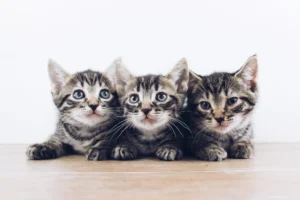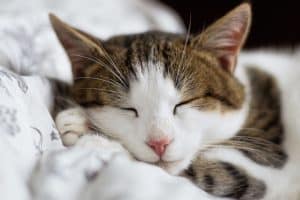Have you ever noticed how cats are often viewed in a negative light by some people? Despite their adorable nature and unique personalities, there seems to be a general tendency to look down upon these feline companions. So why exactly are cats given this unfair treatment?
Historical Misunderstandings
Throughout history, cats have often been misunderstood and associated with superstitions that have contributed to their negative reputation. In ancient Egypt, cats were revered and considered sacred animals, but in medieval Europe, they were often linked to witchcraft and evil spirits. This misconception led to widespread persecution of cats during the Middle Ages, as they were believed to bring bad luck and misfortune.
Furthermore, during the bubonic plague, cats were seen as carriers of disease and were exterminated in large numbers. These historical misunderstandings have perpetuated a negative perception of cats, even though they are clean and fastidious animals that actually help control rodent populations.
Stereotypes in Popular Culture
Stereotypes portrayed in popular culture have also influenced the way people perceive cats. For example, the idea that cats are aloof and unaffectionate animals is a common stereotype that is often reinforced in movies, TV shows, and cartoons. While some cats may have independent personalities, many cats are actually very loving and affectionate companions.
Additionally, the portrayal of black cats as symbols of bad luck in Western culture has further stigmatized these animals. This stereotype has led to black cats being less likely to be adopted from shelters and more likely to be harmed or mistreated. It is important to recognize that these stereotypes are not representative of all cats and to treat each cat as an individual with its own unique personality.
In Conclusion: By understanding the historical misunderstandings and stereotypes surrounding cats, we can work towards dispelling these negative perceptions and appreciating these animals for the loving and intelligent companions they truly are.
Cultural Differences in Cat Ownership
Cats are often looked down upon due to cultural differences in the treatment and perception of these animals around the world. In some cultures, cats are associated with bad luck or viewed as pests, leading to negative attitudes towards them. These beliefs have been passed down through generations, contributing to the stigma surrounding cats.
In contrast, some cultures revere cats and consider them sacred animals. For example, in ancient Egypt, cats were worshipped and seen as symbols of protection and good fortune. This cultural difference highlights the diverse ways in which cats are perceived and treated globally.
Moreover, the attitude towards cats can also be influenced by economic factors. In societies where resources are scarce, cats may be viewed as competition for food or resources, leading to a negative perception of these animals. Understanding these cultural nuances can help shed light on why cats are sometimes unfairly looked down upon in certain communities.
The Influence of Social Media
The rise of social media has played a significant role in shaping the negative image of cats in popular culture. While cats have long been a beloved animal companion for many, viral videos and online trends often portray them in a negative light. From videos showcasing cats behaving aggressively to memes that perpetuate stereotypes about their aloof nature, social media has contributed to reinforcing the idea that cats are inferior pets.
Furthermore, the widespread sharing of sensationalized content featuring cats has influenced public perception. People are more likely to remember negative portrayals of cats in viral videos than positive ones, leading to a skewed view of these animals. As a result, cats are sometimes unfairly stigmatized as unaffectionate or unpredictable pets.
To combat these negative stereotypes perpetuated by social media, it is essential to seek out accurate and balanced information about cats. By promoting positive narratives and showcasing the many benefits of cat ownership, we can help challenge misconceptions and foster a more positive attitude towards these lovable animals.
The Importance of Education and Understanding
It’s crucial to shed light on the fascinating world of cats to break stereotypes and foster positive perceptions. Misinformation and lack of awareness often lead people to look down on cats, believing they are aloof or unaffectionate. By educating ourselves and others about cat behavior and emotional needs, we can cultivate a deeper understanding and appreciation for these incredible creatures.
One important aspect to consider is that cats are not small dogs. They have unique behavior patterns and communication methods that are often misunderstood. It’s essential to learn how to interpret their actions and needs correctly. Providing proper enrichment, interaction, and mental stimulation can help create a harmonious relationship with your feline friend.
Another key point is to dispel myths surrounding cats, such as the belief that they are solitary animals. In reality, cats are social creatures that thrive on companionship. By spending quality time with your cat and addressing their individual preferences, you can strengthen your bond and promote their well-being.
Understanding the importance of cat health and nutrition is also crucial. By providing balanced meals, regular veterinary care, and mental stimulation, you can ensure your cat leads a healthy and happy life. Remember, educating yourself about cats is a continual process, and the more you learn, the more you can appreciate these amazing animals.
Cats as Misunderstood Creatures
Cats are often misjudged and misinterpreted due to their unique behaviors and instincts. One common misunderstanding is that cats are aloof or standoffish. In reality, cats are affectionate and emotional beings that form deep bonds with their humans.
Furthermore, the misconception that cats are low-maintenance pets can lead to neglect of their physical and emotional needs. Cats require environmental enrichment, regular play, and mental stimulation to thrive. By understanding and addressing their needs, you can create a fulfilling and rewarding relationship with your feline companion.
It’s important to recognize that cats communicate in subtle ways that may be misinterpreted by humans. By observing their body language and vocal cues, you can better understand your cat’s emotions and respond accordingly. Building a strong connection based on trust and mutual respect is key to overcoming misconceptions about cats.
In conclusion, by taking the time to educate ourselves about cats and appreciate their unique qualities, we can challenge stereotypes and foster positive attitudes towards these incredible creatures. Remember, cats are complex and fascinating beings that deserve our love and understanding.
The Benefits of Cat Companionship
Owning a cat can bring a multitude of benefits to your life. Studies have shown that interacting with cats can reduce stress and anxiety levels, providing a sense of calm and relaxation. The gentle purring of a cat has even been found to lower blood pressure and promote feelings of well-being.
Furthermore, cats are low-maintenance pets, requiring minimal effort compared to high-energy dogs. Their independent nature makes them suitable for busy individuals or those living in smaller spaces. They provide affection and companionship without the need for constant attention, making them ideal for those with a hectic lifestyle.
In addition, having a cat can improve your mental health. The responsibility of caring for a pet can give you a sense of purpose and routine. The playful antics of a cat can bring joy and laughter into your home, boosting your mood and overall happiness.
Overall, the benefits of cat companionship are vast and varied, making them a valuable addition to any household.
Celebrating Cats
Let’s take a moment to appreciate the beauty and charm of our feline friends. Cats are elegant creatures with a grace and agility that is unmatched in the animal kingdom. Their sleek fur, mesmerizing eyes, and soothing purrs make them a delightful presence in our lives.
Not only are cats physically captivating, but they also have unique personalities that are endearing and entertaining. Each cat has its own quirks and habits that make them lovable and irreplaceable. Whether they are chasing a feather toy, curling up in a sunny spot, or simply nuzzling against you for affection, cats never fail to bring joy to their owners.
It’s important to celebrate and respect these wonderful creatures for the joy and companionship they bring into our lives. Take a moment to appreciate the purrfect simplicity and elegance of cats, and cherish the bond you share with your feline companion.
Alex, a passionate animal lover, has experience in training and understanding animal behavior. As a proud pet parent to two dogs and three cats, he founded AnimalReport.net to share insights from animal experts and expand his knowledge of the animal kingdom.




